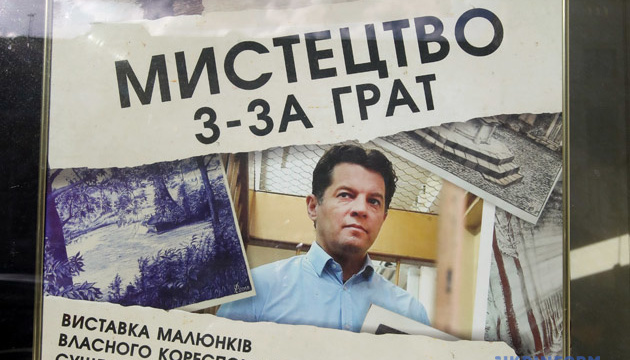
Ukrainian echo of ancient Polish history
An exhibition of drawings by a Ukrainian political prisoner in Russia, journalist, Ukrinform correspondent Roman Sushchenko, has opened in Warsaw. The event was organized jointly by the Embassy of Ukraine in Poland and the Polish Journalists Association (SDP).
During his detention in Moscow, Sushchenko created more than 20 drawings, and their enlarged photocopies are shown at exhibitions. Their first presentation was held in Kyiv under the title "Art From Behind Bars." The pictures were then shown at the Brussels Press Club.
Ukrinform's Director General Oleksandr Kharchenko took part in the opening of the exhibition in Warsaw. Speaking to the Polish audience, he referred to the stories of three intellectuals from Poland - a journalist, a writer and an artist who at different times were in exile in Russia, namely in Vyatka, Vyatsky Krai - the same place where our colleague, Sushchenko, is currently imprisoned.
Ukrinform offers the full text of Oleksandr Kharchenko's speech:
Dear Ladies and Gentlemen,
Today we are opening an exhibition of my colleague, Ukrinform journalist Roman Sushchenko. He created these pictures, over 20 of them, during a politically motivated Russian investigation, while staying in Moscow's Lefortovo detention center.
The first presentation of the exhibition took place last autumn in Kyiv under the title "Art From Behind Bars." It was then shown at the Brussels Press Club. Now it is presented in the Polish capital, and then, in the near future, these pictures will be exhibited in France.
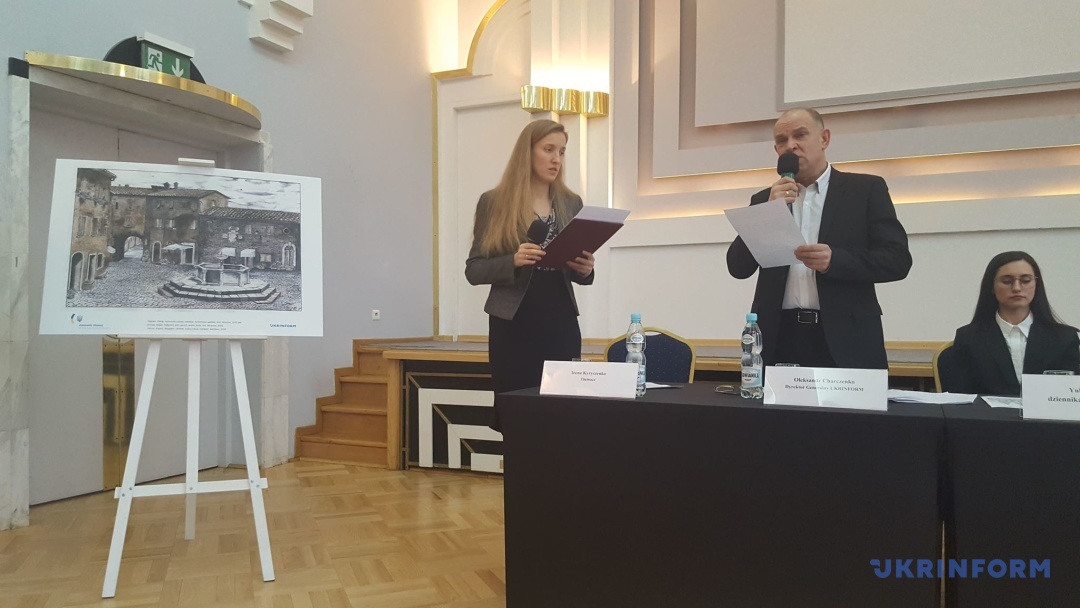
It has long been noted that people, things, creative artifacts that stayed in jail and bear their distinction are gaining some special weight. A prison, like a magnifying glass, highlights the most important features of things, and especially of people. Despite the tremendous psychological pressure and promises from the FBI, Sushchenko did not admit his guilt and refused to cooperate with a misleading investigation. And he has lived a busy life there, in prison. He reads a lot, makes notes, planning to publish a book over time. He keeps in trim. He turned plastic bottles and water into dumbbells and a barbell.
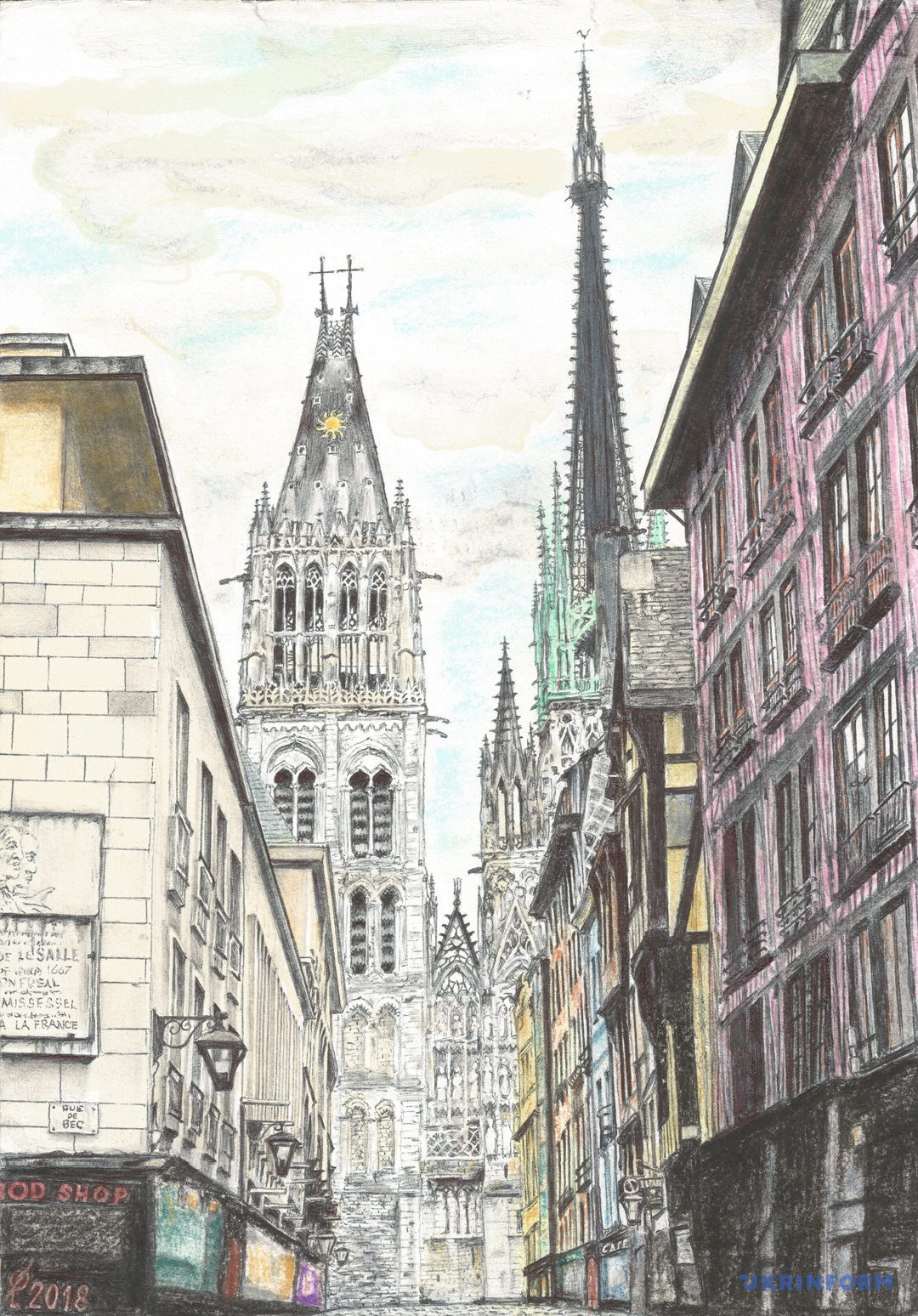
And he draws! When you look at these pictures, their unique colors catch your eye. At the same time, they are restrained and expressive. Why is it so? It's because of the material that Roman was able to find when creating one or another picture. Onion skins, beetroot juice, tea, ballpoint pen, washing powder. These are life paints available to our colleague behind bars. All this, as well as the desire for freedom, love for life, artistic talent, and taste, helped make these magnificent urban and natural landscapes.
A few words about Roman. He is Ukrinform's foreign correspondent in Paris. He is gifted, hardworking, a scrupulous journalist. He is universal, as is common for foreign correspondents. He was arrested on September 30, 2016, when, taking a few days of vacation, he flew to Moscow to visit his brother. The FSB's investigative directorate kept the Sushchenko case secret, motivating that by serious charges "for espionage." Russian criminal justice does so when it's not sure about evidence base. After two years of the so-called investigation, Roman was sentenced to 12 years in prison. A long term, given that, according to Sushchenko's defense lawyer Mark Feygin, the whole system of evidence was based on the testimony of one single person - an old friend with whom Roman had been familiar for almost 30 years...
The Russian press tried to create some sort of bondiana, while the issue actually concerns a banal provocation based on human prudence. It's hard to believe that so many years of friendly relations do not matter. Planning such a provocation in such an entirely controlled police country as a modern Russia is, as they say, a mere formality.
In addition, false statements can still be found in the Russian media that allegedly nobody knows journalist Sushchenko and that his life is unknown. This is despite the fact that the professional journalistic activities of the Ukrinform correspondent in France have always been extremely transparent, which can be and was confirmed by foreign journalists working in Paris, including, by the way, a correspondent of the Russian newspaper Novaya Gazeta.
Roman and his wife, Anzhelika, have two children. Their son, Maksym, is still a teenager. Their daughter, Yulia (who you see here), as often happens with children, looking at her father as a journalist, has also chosen this profession. She has been working with us at Ukrinform for a long time.
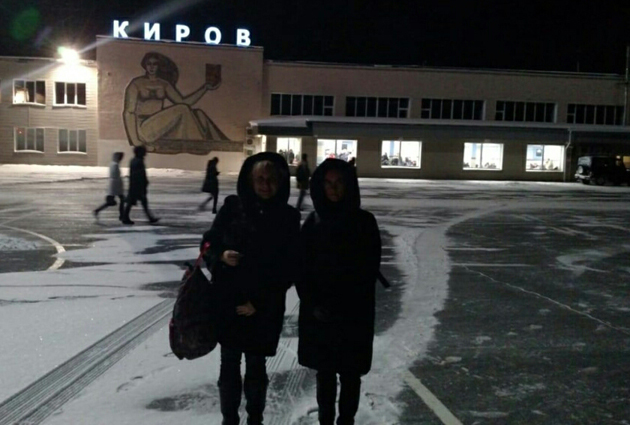
Last autumn, when the verdict was given, Roman was transferred to a penal colony in Kirovo-Chepetsk, a distant suburb of the regional center of Kirov. Daughter Yulia and wife Anzhelika have recently had a three-day meeting with Roman for the first time. However, Yulia herself will tell about it...
In the meantime, I would like to pay attention to other things. In August 2017, we received a request from the National Museum of History of Ukraine. What request? To give them a letter from Roman to his colleagues at Ukrinform. Since then, it has been exhibited there, telling about Ukrainian prisoners in Russia. After that you feel how our everyday life becomes part of history. Sometimes we are witnesses to and sometimes creators of this history.
I do not know how well-known for the Polish audience is the fact that our [colleague] Roman Sushchenko is serving an unjust term somewhere near Kirov. But let us recall the old, pre-revolutionary name of this city, those lands - Vyatka, Vyatsky Krai. This is one of the traditional gloomy places of exile of the Polish patriots who fought for Poland's freedom during bloody encounters with the Empire.
My colleagues from the photo department printed a letter with four pictures. Ukrinform journalist Roman Sushchenko is on one of them. And who are the three others? What unites all of them? What? The fact that they were all exiled by an empire, old Russian, Soviet or already new, Putin's sub-empire to Vyatka, Vyatsky Krai.
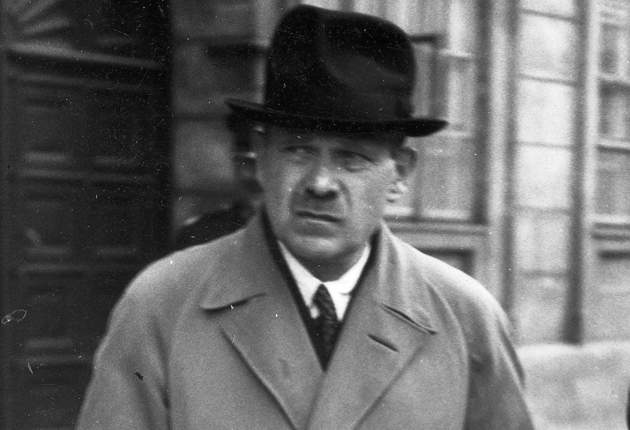
Here, for example, is Stanislaw Cywinsky, a journalist from the times of the Second Polish Republic [II Rzeczpospolita]. Back then, he suffered for one of his articles. But the worst thing happened after the introduction of the Molotov-Ribbentrop Pact. The journalist was captured by Soviet invaders and sent to Vyatlag, the Vyatsky camp from the great Stalin's Gulag, where he died in the spring of 1941.
So journalist Cywinsky died in the Kirov region, the former Vyatsky Krai.
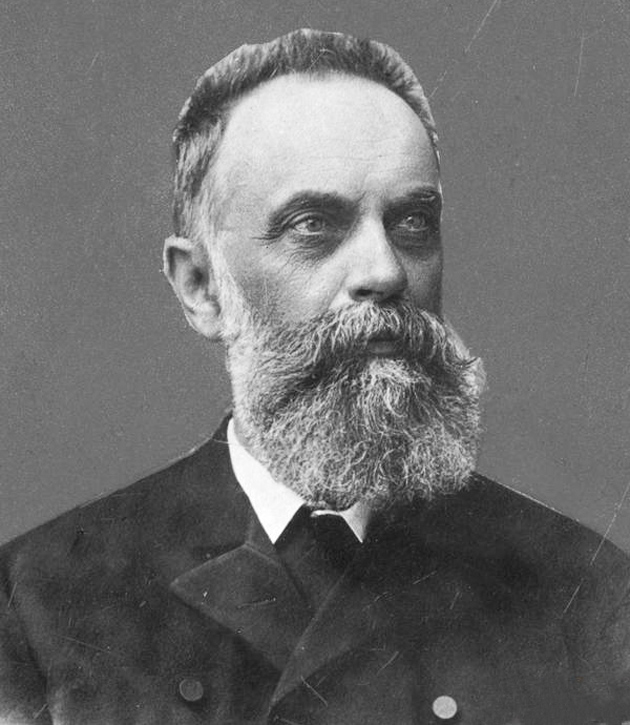
And here is Marian Karol Dubiecki. Before the uprising of 1863, he was in exile in Vyatka. And then, during the January uprising, he represented Rus, that is Ukraine, in the National Government formed by the rebels. After the uprising was suppressed, he was the only one from the Government, who was fortunate enough to avoid violent death, execution. Later, after the first collapse of the Russian Empire, Dubiecki wrote in the memoirs "Echoes of the January Uprising" the following bitter lines:
"The victorious Russia, tasting blood and oppression, reigned in a barbaric way over the defeated people, breaking with the help of a school into the minds of the younger generations, wiping out national consciousness... Own traditions of the best times gave way to the creeping science of Russifiers."
How precisely formulated! How well this thought of a Rusyn of the 19th century reflects the feelings of Ukrainians of the 21st century!
So Rusyn Marian Dubiecki was in exile in Vyatka in 1861-1862.
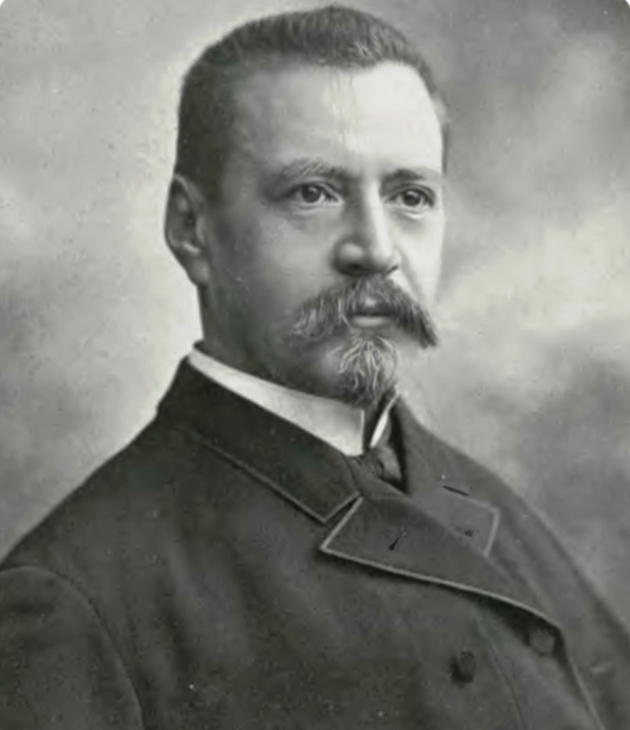
And finally, Michal Elwiro Andriolli, a Polish artist, graphic artist, well-known illustrator of many classical works, beginning with Mickiewicz. He also participated in the January uprising. He managed to escape to the West but returned to the country as an envoy of the Polish national committee of the occupied lands. In 1866, Michal was arrested and sent to Vyatka, where he was in exile until 1871.
So artist Michal Andriolli. Five years of exile in Vyatka.
And again - closing the circle - Roman Sushchenko, a Ukrainian, journalist, artist, whose exhibition we are opening. Twelve years of imprisonment in a high-security penal colony in the Kirov region, the former Vyatsky Krai. The topical Ukrainian echo of ancient Polish history...
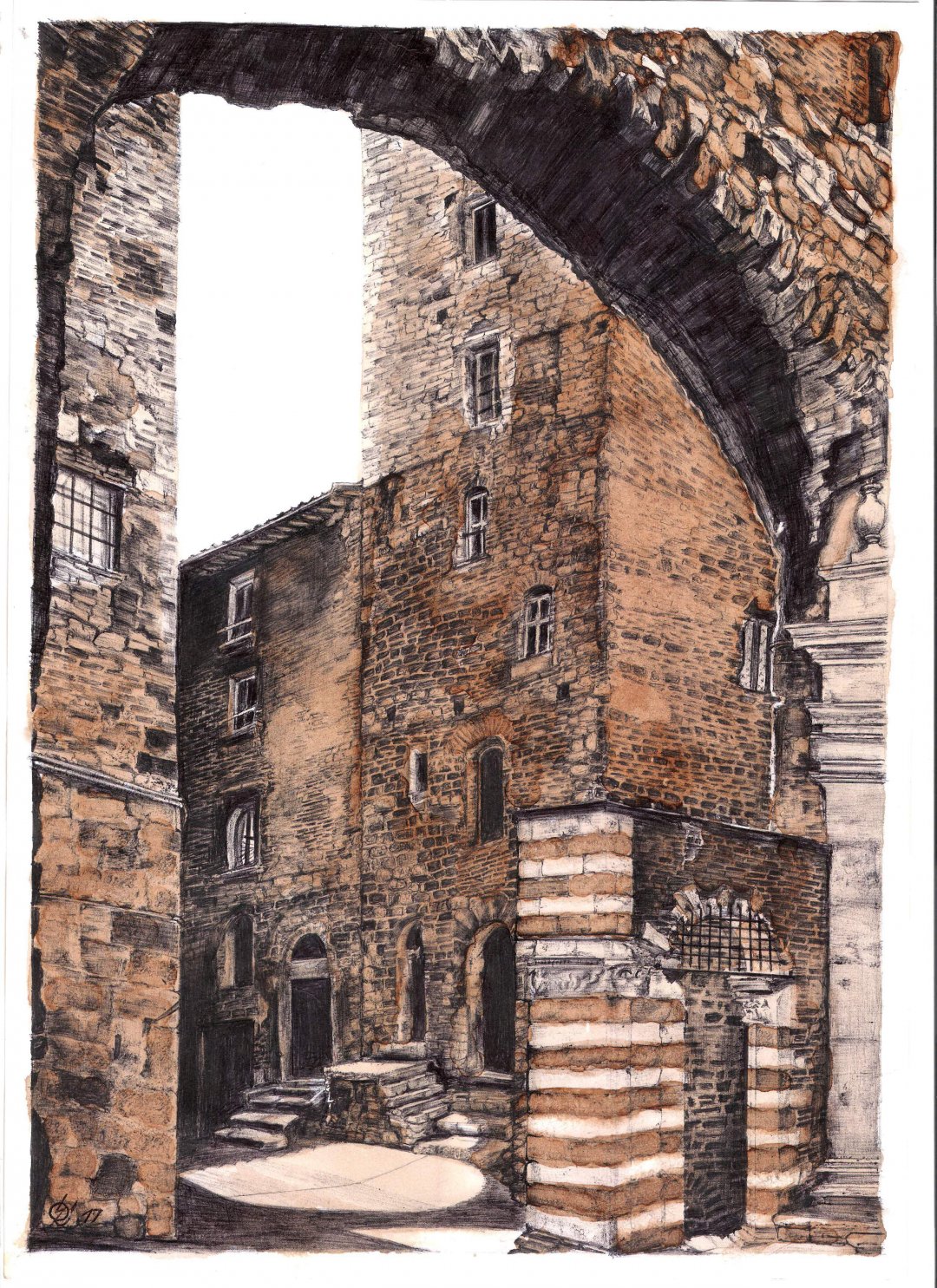
Looking at Roman's drawings, feel his light yen for will. Feel also the common features of our history, Ukrainian and Polish, the history of the invincible struggle for freedom in which we had and have one common enemy.
But, opening Sushchenko's exhibition, we should not forget about other Ukrainian political prisoners held in Russia. There's no need to look for someone far away - Valentyn Vyhovsky is serving his term in the same colony as Sushchenko (again, what a great surname for those who remember history).
In total, there are currently 69 Ukrainian political prisoners in Russia. Twenty-four Ukrainian sailors, prisoners of war, joined them after Russia's lawlessness in the Kerch Strait. All these are people whom the Kremlin has taken hostage, planning to get the easing of sanctions in exchange for them.
Another great pain is the situation in occupied Donbass and in annexed Crimea. It is hard to imagine, but in today's Europe, the whole people - Crimean Tatars – has fallen victim to the policy of imperial restraint for the second time during the last century. This is a fact that cannot be forgotten, as well as the fact that Crimean Tatars make up a large proportion of Ukrainian political prisoners.
As a journalist, I cannot but mention Ukrainian journalists captured by Russian cronies in the occupied territories. These are Stanislav Aseev and Oleh Halaziuk in occupied Donetsk; Mykola Semena, unjustly convicted in occupied Crimea.
We in Europe and the world cannot calmly observe the lawlessness of Russia, such an international hooligan. This is simply dangerous for all countries of the free world. Who knows that better than Poland? Therefore, democratic countries must unite in their position of a strong rejection of aggression, violations of international law, and hostage-taking policies. The experience shows that the Kremlin regime releases someone from its claws only in cases when it becomes too inconvenient, leads to the loss of the image or something else.
Let us recall, by the way, another Crimean citizen - Oleg Sentsov. Russian intelligence services seized him at the peak of his creative career. To shoot his first film, Oleg sold his small business. And that movie "Gamer" won a prize at the Rotterdam International Film Festival. Sentsov began work on the second movie. But it was stopped by the war, the insidious occupation of Crimea...
Sentsov is currently serving punishment in the most difficult conditions of the polar town of Labytnangi. And the Kremlin stubbornly does not want to release him from prison although dozens of the world's most famous filmmakers demanded that. Among them are three prominent Polish film directors - Andrzej Wajda, Krzysztof Zanussi and Agnieszka Holland...
Berlinale began a few days ago. The premieres of the Polish-Ukrainian-British film produced by Agnieszka Holland "Mr. Jones" were held at the Berlin Film Festival yesterday and today. This film is about principled Welsh journalist Gareth Jones, who in 1932-33 did not succumb to Kremlin propaganda and honestly told the world about the terrible crime of the Holodomor in Ukraine. But not everyone in the world wanted to hear Gareth Jones. And someone was simply bought by the Kremlin.
And again, how modern this theme sounds today. Again we see the Kremlin's crimes, again we see attempts to blur the eyes or bribe Western politicians and journalists.
But today we are stronger than 85 years ago. Firstly, because there are more of us than before, and there is less of the Moscow Empire. Secondly, because we have a great experience, in some way sad and in some way glorious. And we will never forget about these historical lessons. The main one is that our strength is in unity and solidarity. Or, as was said in a slogan of the Polish uprising, which was then taken over by the Soviet dissidents: "For our and your freedom."
And also for our journalism to be honest. Like that of brave British Gareth Jones, the hero of the joint Ukrainian-Polish movie.
Freedom to Roman Sushchenko! Freedom to Ukrainian political prisoners! Hands off Ukraine!
Oleksandr Kharchenko, Warsaw-Kyiv
